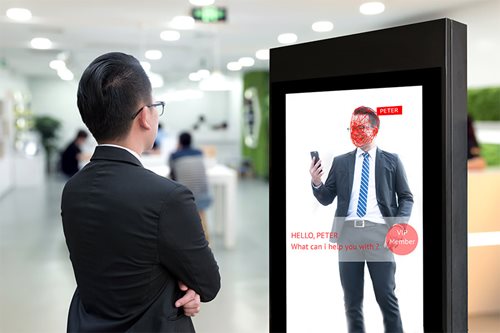How Artificial Intelligence Is Empowering the Retail Industry
The rapid digitisation of communication and purchasing has changed consumers’ habits and expectations. Brands and retailers need to rethink how they develop and sell products and services online, how they interact with their customers and how they operate supply chains.
Artificial Intelligence (AI) refers to machines that can mimic the thinking that we associate with humans. This allows the ability to learn from experiences, to process large amounts of data to solve problems and plan better for the future. Applied to the retail industry, Artificial Intelligence can help customise user experiences, predict trends and better manage supply chains.
Forward-thinking retail players who want to take their online shopping experience to a whole new level are investing in this technology to refine current processes and deliver relevant options based on consumer behaviour and personalisation.
The “Me-Commerce” Era
Tailoring commerce through personalisation – this is the rise of
me-commerce. As mentioned in Forbes:
“People seek differentiation, through access, through individuality, or through price. An increasing number of online commerce platforms that provide almost universal access and unique experiences at affordable prices have placed the consumer premium on individuality.”One of the benefits of AI in retail is the ability to truly customise consumer journeys. Customers want to feel unique and to do so, companies need to get to know their customers. AI is powerful because of its ability to process vast amounts of data about the customers’ buying patterns such as what they like on social media, what they add to their baskets, and how they want to be approached, from email to social media.
Artificial Intelligence can decode each customer’s decision journey by segmenting and analysing significant amounts of data and providing a unique shopping experience with tailored product and service recommendations. Super personalisation can help define marketing strategies and improve targeting.

Personalised Marketing and Pricing Insights
Personalised marketing is essential for gaining new customers, building relationships with existing ones and retaining them to remain profitable. While reaching customers has become easier through various forms of media, engaging with them is harder than ever, generic offers are easily missed or ignored.
Marketing teams using intelligent systems and analysing massive amounts of data can deliver highly relevant and personalised offers to each user, driving engagement. Retailers can personalise offers and content based on each customer’s unique interests and preferences, putting products in front of the people and companies most likely to buy them.
By personalising offers, organisations can deliver a customised experience for every current or prospective customer, boosting engagement and improving customer conversion and retention. Potential customers can be offered “cold start” offers to allow quick traction on new customer conversion.
Retailers can further use transactional history data to model how the demand for products and services responds to offer changes, to ultimately recommend optimal pricing and allow them to simulate how changes in price would affect their demand and profitability, at a fine granularity.
Trend and demand predictions help retailers plan their marketing strategies and better organise their supply chains. By finding a meaningful way to connect with consumers who expect intuitive shopping experiences, retailers need to invest in disruptive technologies like KnowledgeKube to help them shape processes and increase sales.
Machine Learning and Artificial Intelligence with KnowledgeKube
KnowledgeKube is a low code development platform using
Machine Learning and Artificial Intelligence technologies to help companies in the retail sector raise shoppers’ expectations of service and tailor better user experiences.
Voice Recognition
The progress made in voice technology, Machine Learning, Natural Language Recognition and AI is empowering retail to a new shift in voice-assisted e-commerce. From a retailer’s perspective, voice search and recognition will increase cost savings due to the reductions in both time and labour, whilst helping to better manage customer’s purchasing decisions. Based on purchase history, it’s then easier to predict sales, manage inventory and optimise product ongoing product offerings.
Natural language features are more intuitive than web or mobile interfaces. By removing traditional elements such as drop-down or checkboxes, personal assistants allow users to interact more naturally, by either speaking or texting.
Image Recognition/Photo Analysis
Image recognition technology provides many benefits to retailers. By using photo analysis, retailers can examine the image of any product and differentiate it from multiple brands, sub-brands and categories. This allows product recommendations, demand prediction and inventory management to improve existing customer experiences.
Video Analysis
Video analysis in retail is one of the newest trends putting retailers at the top of the competition.
Imagine an application that can find matched products by analysing a video file. The concept is simple. Insert a video of a preferred outfit, and let the app inspire the user with similar items at a cheaper price. Matching customers’ style and lifestyle with clothing suggestions in a matter of seconds can be innovative for retailers, no matter what type of products they sell.
BOT Technology
A chatbot is a computer programme that can hold a conversation usually via text and audio. Simulating dialogue between the user and another "perceived" human is powerful for the retailer, enabling customer questions to be answered in real-time.
According to Statista, the market for AI-driven personal assistants and bots will almost double in 2018, reaching more than $12 billion by 2020 with 1.6 billion active users.
KnowledgeKube takes chatbot technology to another level, even allowing the ordering of products and services through it.
Interested in how KnowledgeKube can help you create smart apps to drive better engagement with customers? Then Book a Demo with one of our product specialists today.
Book a Demo